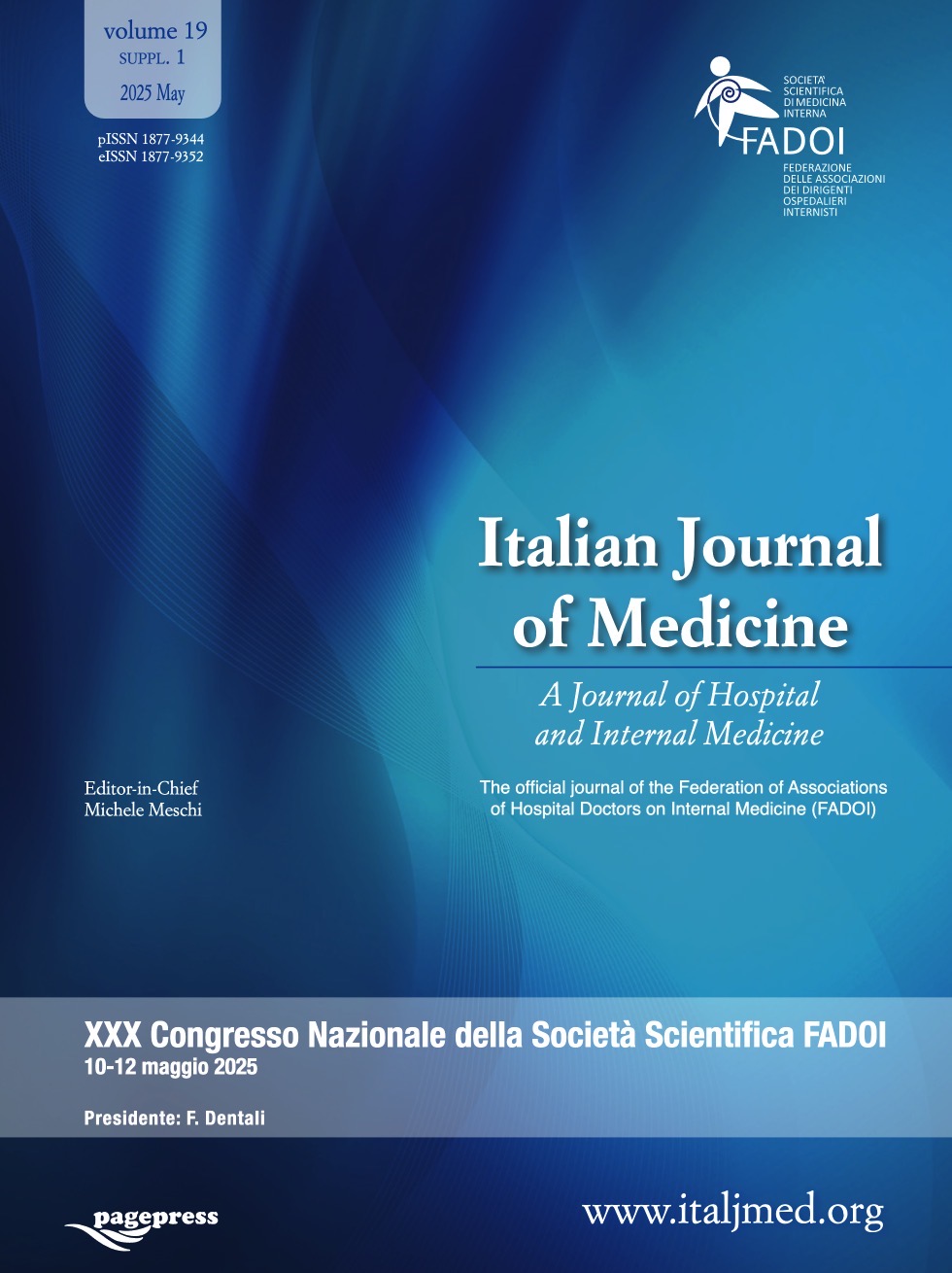XXX FADOI Italian Congress | 10-12 May 2025
27 August 2025
Vol. 19 No. 1(s1) (2025): XXX FADOI Italian Congress | 10-12 May 2025
P142 | Binge eating disorder in health professions and perceived work-related stress: a cross-sectional study
M. Totaro1, D. Comparcini2, F. Pastore1, F. Pascazio3, F. Galli4, G. Cicolini5, V. Simonetti6 | 1Department of Biomedicine and Prevention, Tor Vergata University of Rome, 2Interdisciplinary Department of Medicine, University of Bari “Aldo Moro”, Bari, 3Department of Translational Biomedicine and Neuroscience (DiBraiN), University of Bari “Aldo Moro”, Bari, 4Degree Course in Nursing, Faculty of Medicine and Surgery, Politecnica delle Marche University, Ancona, 5Department of Precision and Regenerative Medicine and Ionian Area-(DiMePRe-J), University of Bari “Aldo Moro”, Bari, 6Department of Medicine and Surgery, LUM University “Giuseppe Degennaro”, Casamassima (BA), Italy
Publisher's note
All claims expressed in this article are solely those of the authors and do not necessarily represent those of their affiliated organizations, or those of the publisher, the editors and the reviewers. Any product that may be evaluated in this article or claim that may be made by its manufacturer is not guaranteed or endorsed by the publisher.
All claims expressed in this article are solely those of the authors and do not necessarily represent those of their affiliated organizations, or those of the publisher, the editors and the reviewers. Any product that may be evaluated in this article or claim that may be made by its manufacturer is not guaranteed or endorsed by the publisher.
34
Views
0
Downloads







